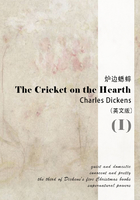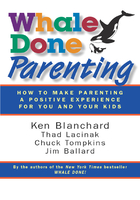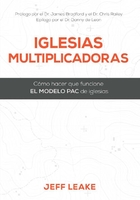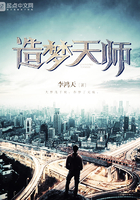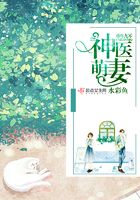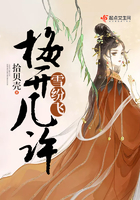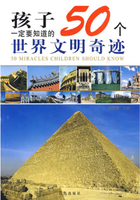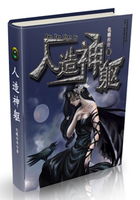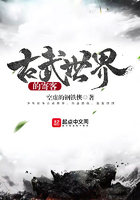The Story of Ko Bong
Ko Bong was one of the greatest Zen Masters in Sung dynasty China.
When he was twenty years old, his teacher gave him the kong-an: "Where was I before I was born, and where will I be after I die?" As he meditated on this kong-an, he came to feel like a traveler who had lost his way in a dark forest. "At that time," he later wrote, "I was altogether dazed by my own delusions."
Three years passed. Ko Bong struggled with the kong-an day and night, unable to achieve any degree of one-pointed-ness. Finally, in despair, he went to see the famous Zen Master Seorl Am. Ko Bong told him of his failure to penetrate the kong-an, and asked for his help.
"We have been told," said the Master, "that all beings have Buddha-nature. This is the teaching of all Buddhas, past, present, and future. However, when a monk came to Zen Master Jo-ju and asked if dogs have Buddha-nature, Jo-ju said, 'No!' What does this 'No' mean?"
Ko Bong was stunned. As he struggled to come up with an answer, the Master took his staff, hit him viciously on the shoulder, and chased him out.
So, in great pain, and weeping with humiliation, Ko Bong returned to his monastery. He couldn't stop thinking about the Master's question. What could it mean? What could it mean? Suddenly, like a flame in a dark room, an understanding was kindled inside his mind, and it spread until it filled his whole being. The original kong-an-"Where was I before I was born, and where will I be after I die?"-seemed obvious now.
The next day, as he was working in the monastery fields, Seorl Am came to visit. He said, "Good morning. How is your search coming along?"
Ko Bong said, "If a man kills his desire to search, he will surely find what he is searching for."
Suddenly the Master grabbed him by the collar and shouted, "Who is dragging this corpse?" Although Ko Bong had understood the kong-an perfectly, he again was paralyzed and could only stare like a moron. The Master pushed him away and left.
Ko Bong was so troubled by this new failure that he couldn't sleep for days. Then, one night, his first teacher appeared to him in a dream and gave him another kong-an: "All things return to the One; where does the One return?" When he woke up, he found that all his doubts and confusion has coalesced into one mass, which weighed on his heart like a huge rock. For five days he walked about in a stupor. On the sixth day he wandered into the great hall of the monastery, where the monks happened to be commemorating the death of the fifth patriarch of the Lin-chi school. For the occasion, they had hung up a portrait of the patriarch, on which he himself had inscribed the following stanza:
Thirty-six thousand mornings
in one hundred years.
Don't you know by now
that it is the same old fellow?
As Ko Bong read the last word, a realization burst upon him. "At that moment," he later wrote, "I felt as if the whole universe had been chopped up into tiny pieces and the whole earth leveled flat. There was no I, there was no world. It was like one mirror reflecting another. I asked myself several kong-ans, and the answers were transparently clear."
The next day he went to see Seorl Am. The Master asked him, "Who is dragging around this lifeless body of yours?"
Ko Bong shouted "KATZ!!!"
The Master took hold of his stick, but Ko Bong snatched it out of his hand and said, "Uh-uh. You can't hit me today."
The Master said, "Why not?"
Ko Bong got up and walked out of the room.
Some time later, another Zen Master visited Ko Bong and said, "Congratulations, I hear you have attained the great enlightenment."
Ko Bong smiled and said, "Thank you."
The Master said, "Can you maintain this state at all times?"
"Yes indeed."
"While you are working or sleeping or dreaming?"
"Yes, even in dreams."
"How about in dreamless sleep, where there is no sight or sound or consciousness. Where is your enlightenment then?"
Seeing that Ko Bong couldn't answer, the Master said, "Let me give you some advice. When you are hungry, eat; when you are tired, rest. The minute you wake up every morning, ask yourself, 'Who is the master of this body, and where does he reside?' This will lead you to a final understanding."
So Ko Bong made up his mind to work on this question without interruption, even if it should drive him insane.
Five years passed.
Then he and a friend left on a pilgrimage to the north of China. On their way they stopped at an inn. Being very tired, the friend fell asleep immediately. Ko Bong sat in a corner and meditated. Suddenly, as the friend moved in his sleep, his wooden pillow fell to the floor. Ko Bong heard the noise and his mind burst open and the whole universe was flooded with light. He understood not only his own kong-an, but all the kong-ans handed down by Buddha and the patriarchs. He felt like a distant traveler who has finally come home. At this moment of great awakening, he composed the following stanza:
The man who has come to this
is the man who was here from the beginning.
He does what he always did.
Nothing has changed.

